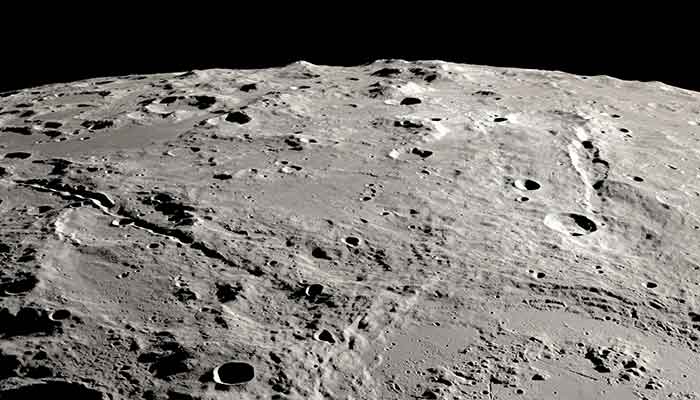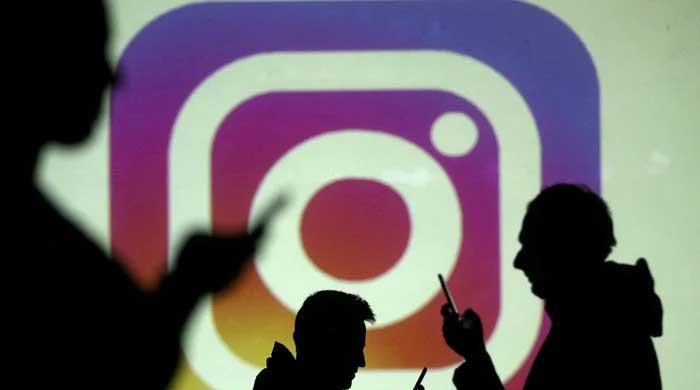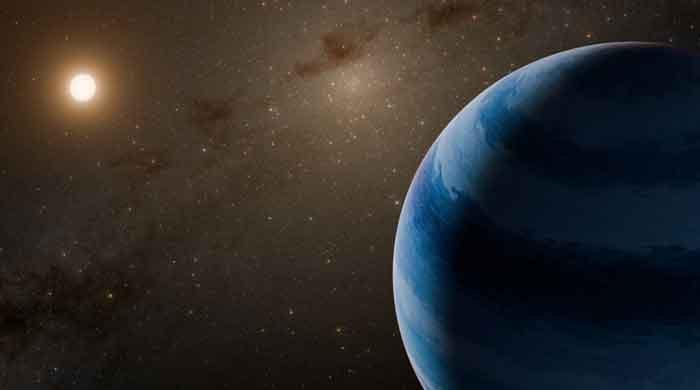Key Nasa officials' departure adds to uncertainty over US moon programme
Elon Musk's influence and Mars focus challenge space agency's moon-centric plans
February 20, 2025

WASHINGTON: Nasa is losing four key senior officials close to its flagship moon programme, according to people familiar with the changes, adding more uncertainty over the agency's space exploration trajectory as Elon Musk and President Donald Trump play up missions to Mars.
Jim Free, Nasa's associate administrator who has been a central voice defending the agency's Artemis moon programme, will retire effective on Saturday, the agency said in a statement on Wednesday.
And in Huntsville, Alabama, three key officials at Nasa's Marshall Space Flight Centre - one of the agency's 10 field centres and the epicentre of its Artemis moon programme - had their retirements announced internally on Tuesday, according to a person familiar with the announcement.
Those roles at MSFC - chiefs of procurement, finance and information - were filled in an acting capacity by deputies and other Nasa officials, the source said. No replacement for Free was announced.
Nasa spokespeople did not return requests for comment.
The leadership shake-up adds more uncertainty over Nasa's direction in space as Musk, the CEO of SpaceX who has long envisioned crewed missions to Mars, oversees a sweeping review of Nasa records as a "special employee" of the Trump administration seeking cuts to staff and programmes.
Musk's SpaceX has $15 billion worth of contracts with Nasa, including a contract to land humans on the moon with its Starship rocket.
Some agency officials expected his eventual departure as many Trump advisors criticise elements of Nasa's moon programme, such as its Space Launch System, an over-budget but operational moon rocket.
Musk and Trump in recent months have touted potential missions to Mars as a possible alternative to the moon, the much closer celestial body that Trump in his first presidential term had set as Nasa's core space exploration target, with long-term moon bases functioning as a proving ground for far-off Mars missions.
But with Musk's roughly quarter-billion-dollar support for Trump and his influential new role in the White House, talk of prioritising new, more difficult missions to the Red Planet has threatened to upend an agency that since Trump's first term has reoriented its structure and roughly $25 billion annual budget to focus on the moon.
Jeff Bezos, whose space company Blue Origin has a multi-billion-dollar contract with Nasa to land humans on the moon after SpaceX's Starship, told Reuters in January the Trump administration should stay on course with the moon programme.
But the Trump administration quickly sidelined Free and put Janet Petro, who was the director of Nasa's Kennedy Space Centre, in the acting role, a move seen by many officials in the agency as an attempt to prevent Free from potentially shielding the moon programme from future changes.
Petro has said hundreds of Nasa employees have accepted buyout offers from the Trump administration.
The shake-ups and looming strategic shift at Nasa heap more uncertainty for the agency's almost 18,000 employees who have been whipsawed this month between shifting expectations of indiscriminate layoffs.
Nasa employees expected senior leadership to fire roughly 1,000 new employees with probationary status on Tuesday, pursuant to a Trump administration order.
But by Tuesday night, following pushback from scientists and staff, Petro told senior officials Nasa would be exempt from the order, at least temporarily, according to two people familiar with the matter.
Trump's nominee for Nasa, private astronaut and billionaire entrepreneur Jared Isaacman, is in Washington this week to prepare for his confirmation hearing at the US Senate.











